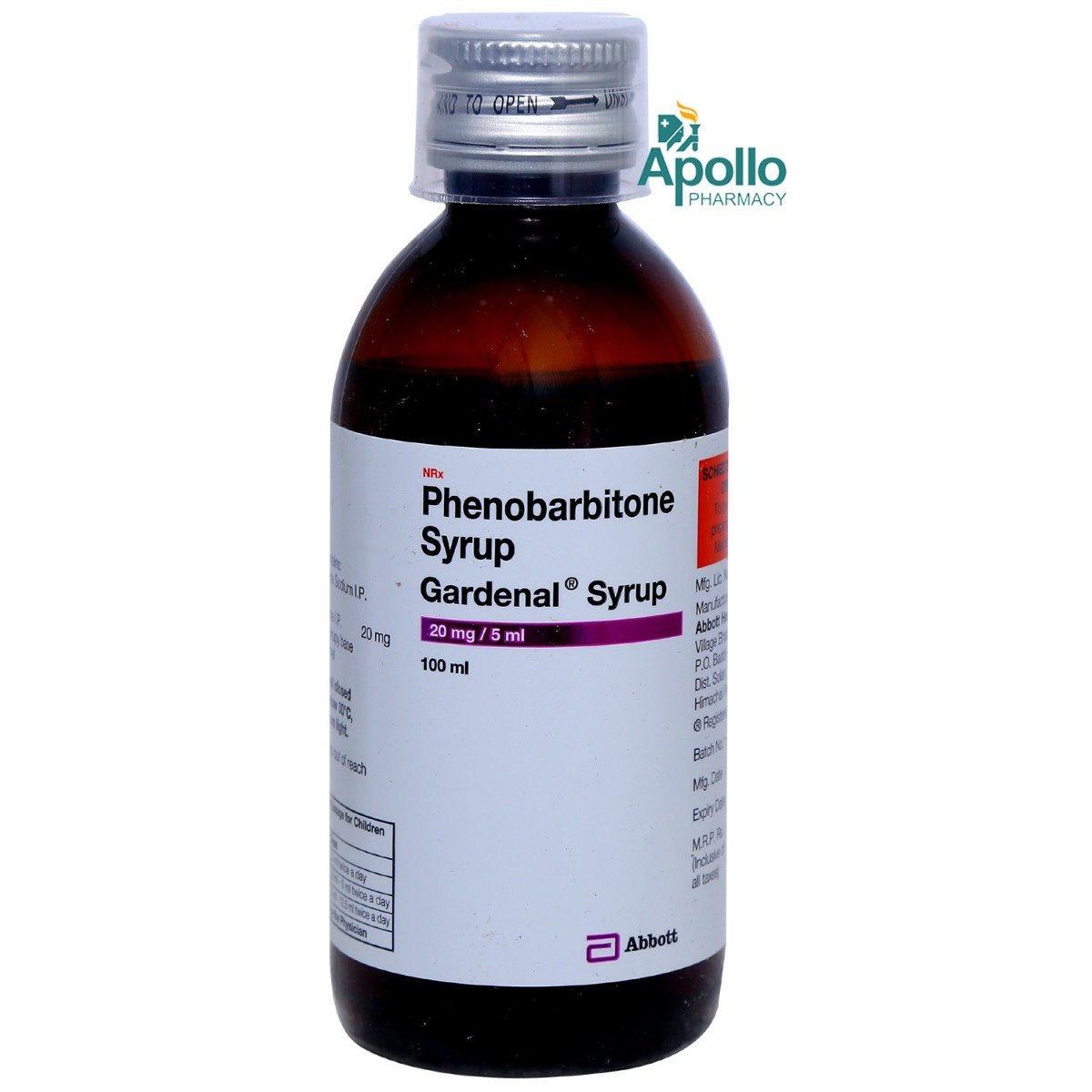Gardenal Syrup 60 ml
MRP ₹52
(Inclusive of all Taxes)
₹7.8 Cashback (15%)
Extra 10% Off with Bank Offers
Selected Pack Size:60 ml
60 ml ₹46.8
(₹0.78 per ml)
Out of stock
100 ml ₹45.9
(₹0.46 per ml)
Out of stock
Provide Delivery Location
Non returnable*
COD available
Online payment accepted
 Prescription drug
Prescription drugWhats That
Composition :
PHENOBARBITONE-20MG
Manufacturer/Marketer :
Nicholas Piramal India Ltd
Consume Type :
Oral
Expires on or after :
Return Policy :
Not Returnable
All Substitutes & Brand Comparisons
RX
Not for online saleGardenal Syrup 100 ml
Abbott India Ltd
₹51
(₹0.46/ 1ml)
41% CHEAPER
FAQs

Have a query?






